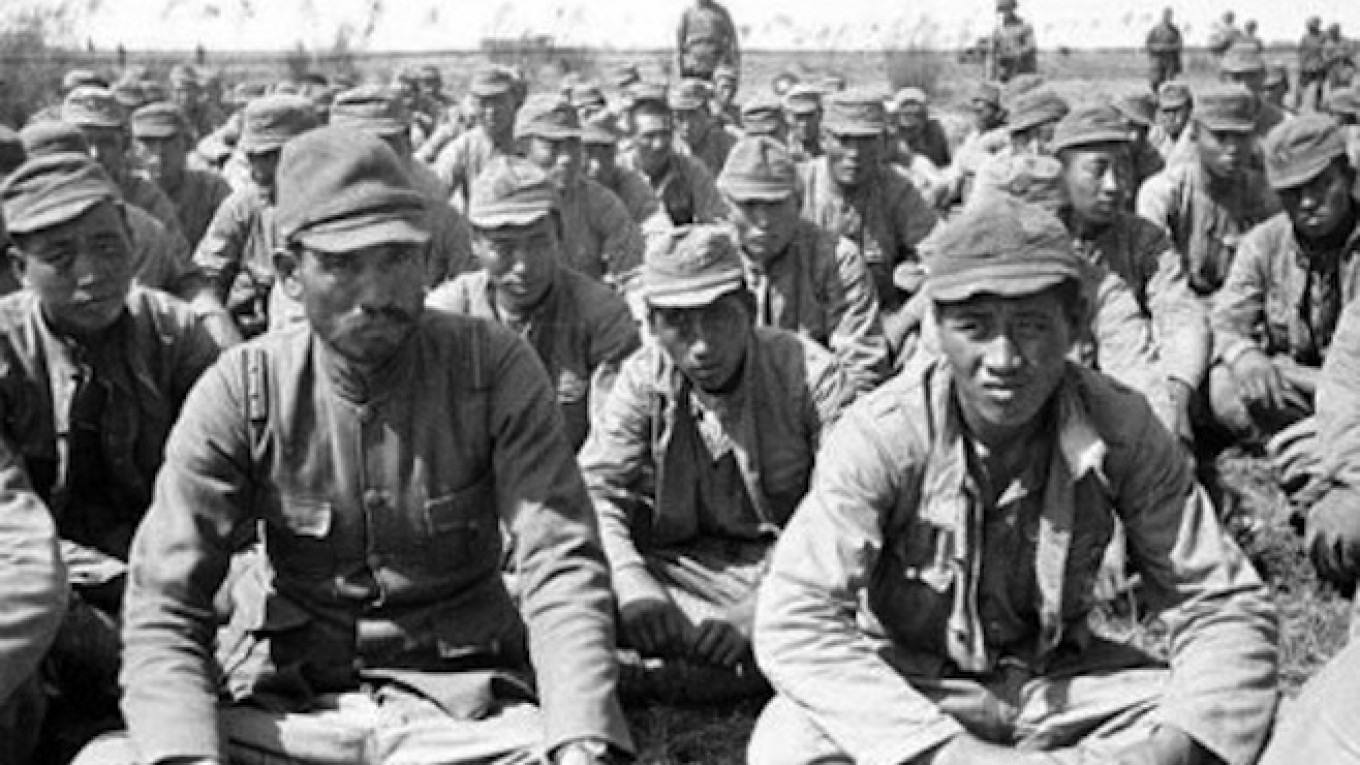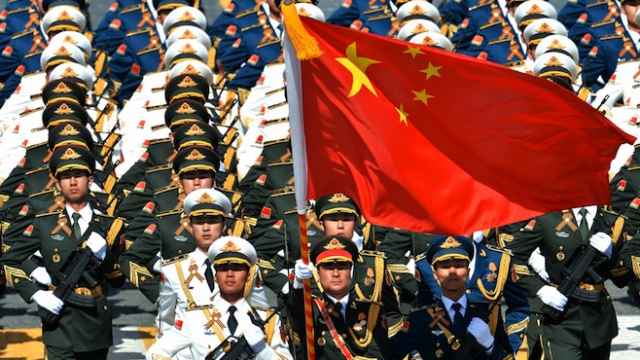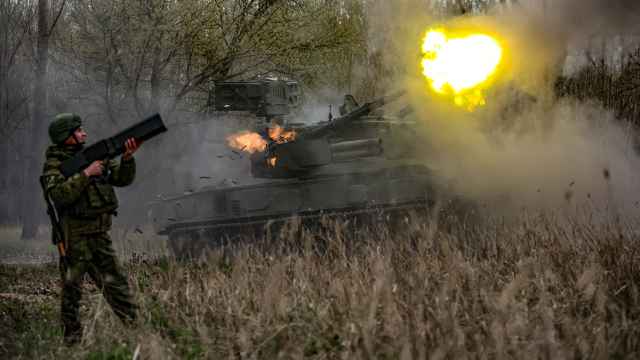Archival photos of Japanese POWs working at Soviet labor camps following the end of World War II have been released by independent Dozhd television station to mark the Sept. 2 anniversary of the war's end.
The photos, dated from 1945 to 1950, come from a private archive and have been "published for the first time," Dozhd said in a report Wednesday. World War II officially ended on Sept. 2, 1945, although Russia celebrates its Victory Day on May 9, to mark the end of the war in Europe.
The images show prisoners playing musical instruments and board games, eating at a mess hall and posing for a group photo.
Historian Andrei Samokhin said that prisoners of war enjoyed better living conditions than even Russian civilians, even though the work was hard, and the food was unfamiliar to the Asian palate, Dozhd reported.
"The Japanese prisoners ate the same way as the soldiers of the Red Army; their living conditions were based on the same standards," Samokhin was quoted as saying. "Soviet civilians — for instance, those who worked at factories — received smaller rations."
Vadim Karaman, another historian, concurred that "prisoners generally received better treatment than [the Soviet Union's] own citizens" — a practice he said might be attributed to the supposed plotting by the Soviet government to establish a "Japanese Socialist Republic, along the lines of North Korea," Dozhd reported.
Japanese prisoners were offered classes in the Russian language as well as studies in Marxism and the works of Soviet dictator Josef Stalin, Samokhin said, Dozhd reported.
"Despite the fact that there was a directive that banned forceful conversion to communism, ideological work was going on at the camps," he added. "The prisoners included those who were truly charmed by communism: They saw how a former peasant could become a military officer, which was impossible in Japan."
But Japanese soldier Miyamoto Tsutomu, who spent 1945-1949 in a POW camp in Russia's Far East, painted a different picture in his memoirs, according to the report.
"I recall an old ensign, sitting motionlessly by the fire and saying: 'Since they don't feed us even rice, may one go collect more firewood?'" Tsutomu was quoted as saying. "Or the former middle school teacher who stole bits of salmon during the night from a kitchen cauldron. Or a former salesman at a convenience store who got shot from a watchtower by a guard when he tried to sneak into a warehouse with food for the Russians."
The work at the camps could be so hard that "often even the thought occurred: 'What if I drop the stones and smash my hands with them," Tsutomu wrote, Dozhd reported.
Japan also had a share of communist sympathizers, some of whom came into the Soviet Union voluntarily, where they settled down and started families. Some of their most prominent descendants include Russian politician Irina Khakamada — the daughter of a Japanese communist who immigrated to the Soviet Union in 1939.
A Message from The Moscow Times:
Dear readers,
We are facing unprecedented challenges. Russia's Prosecutor General's Office has designated The Moscow Times as an "undesirable" organization, criminalizing our work and putting our staff at risk of prosecution. This follows our earlier unjust labeling as a "foreign agent."
These actions are direct attempts to silence independent journalism in Russia. The authorities claim our work "discredits the decisions of the Russian leadership." We see things differently: we strive to provide accurate, unbiased reporting on Russia.
We, the journalists of The Moscow Times, refuse to be silenced. But to continue our work, we need your help.
Your support, no matter how small, makes a world of difference. If you can, please support us monthly starting from just $2. It's quick to set up, and every contribution makes a significant impact.
By supporting The Moscow Times, you're defending open, independent journalism in the face of repression. Thank you for standing with us.
Remind me later.






